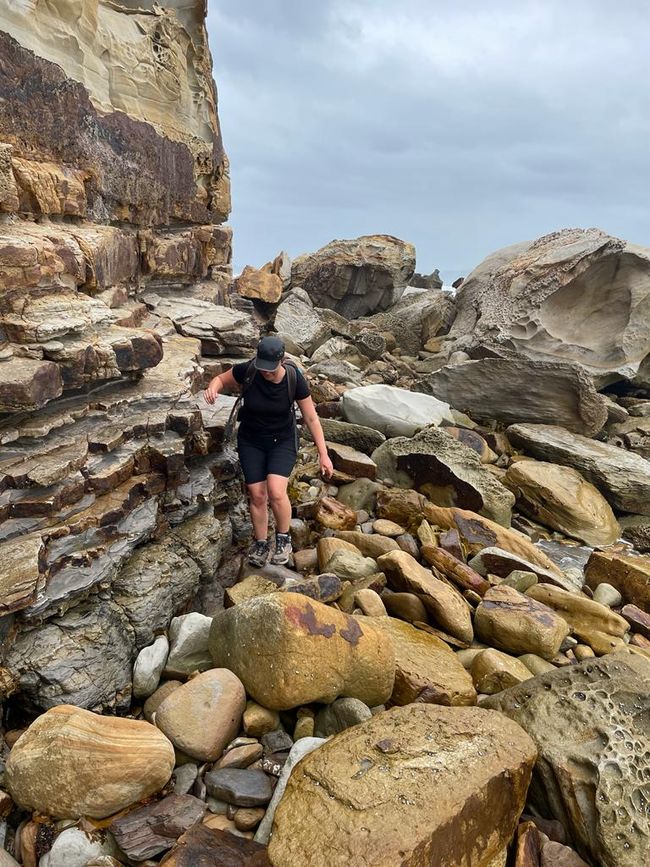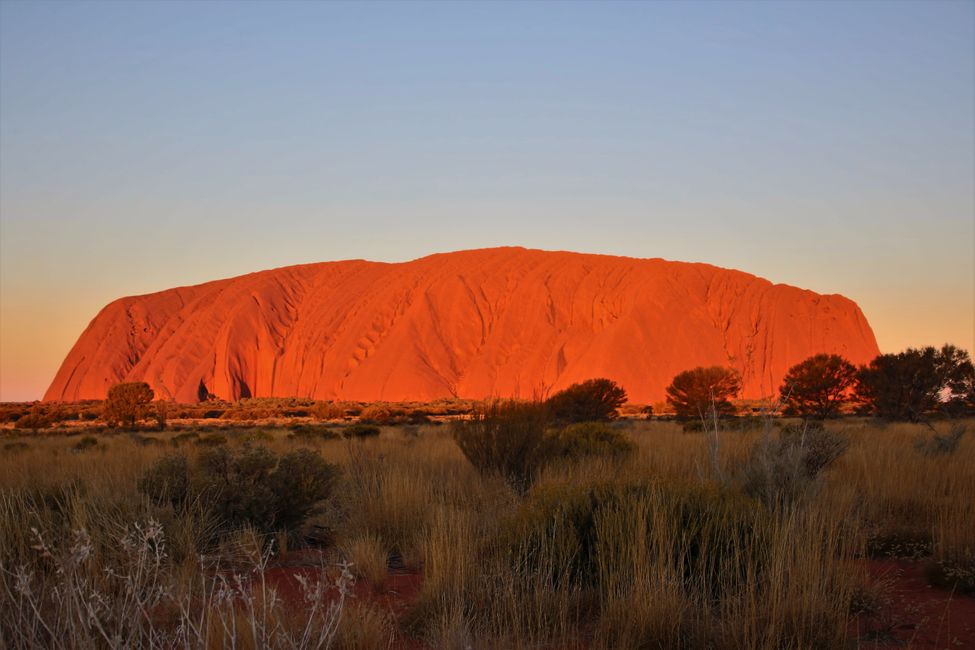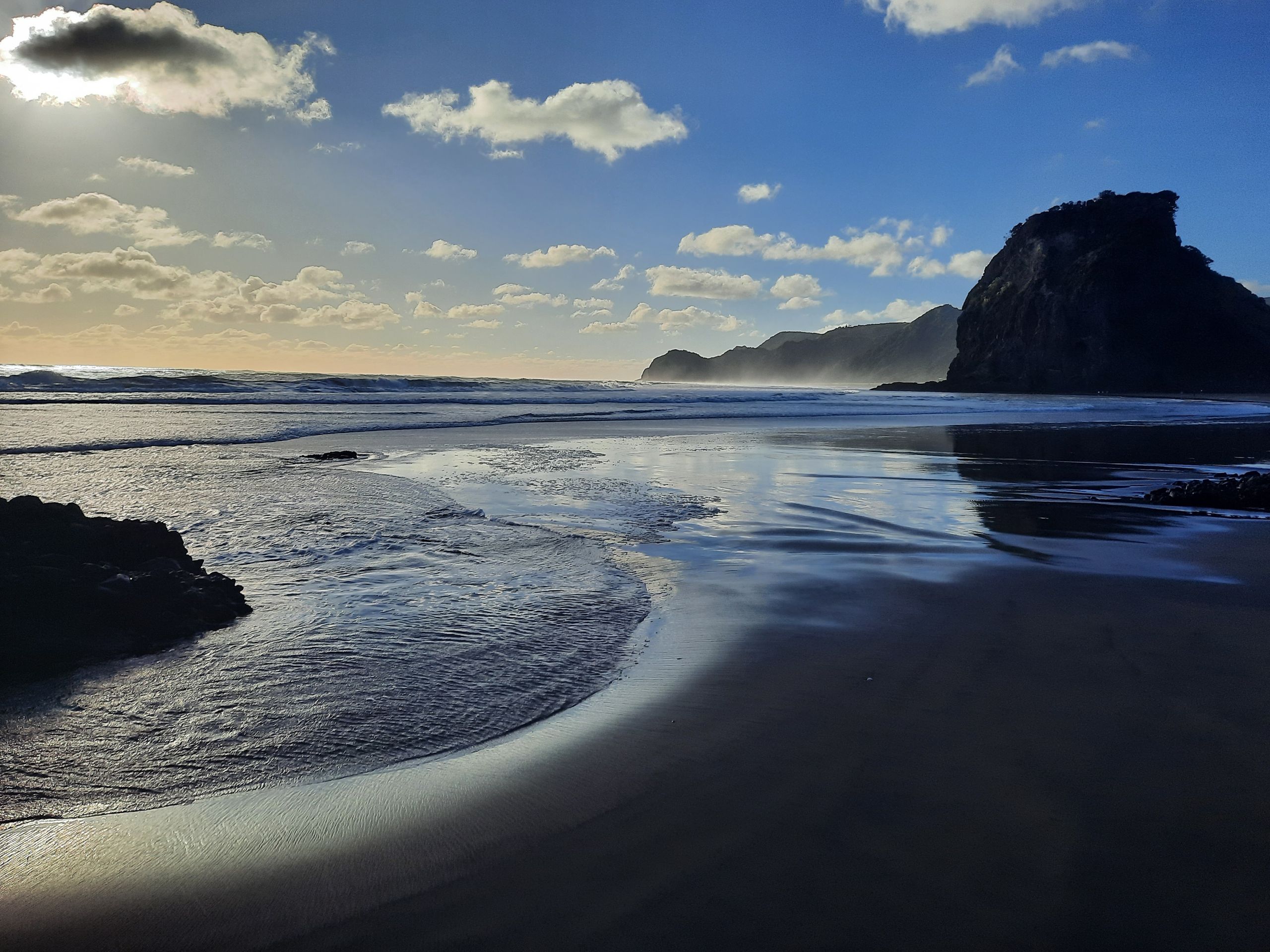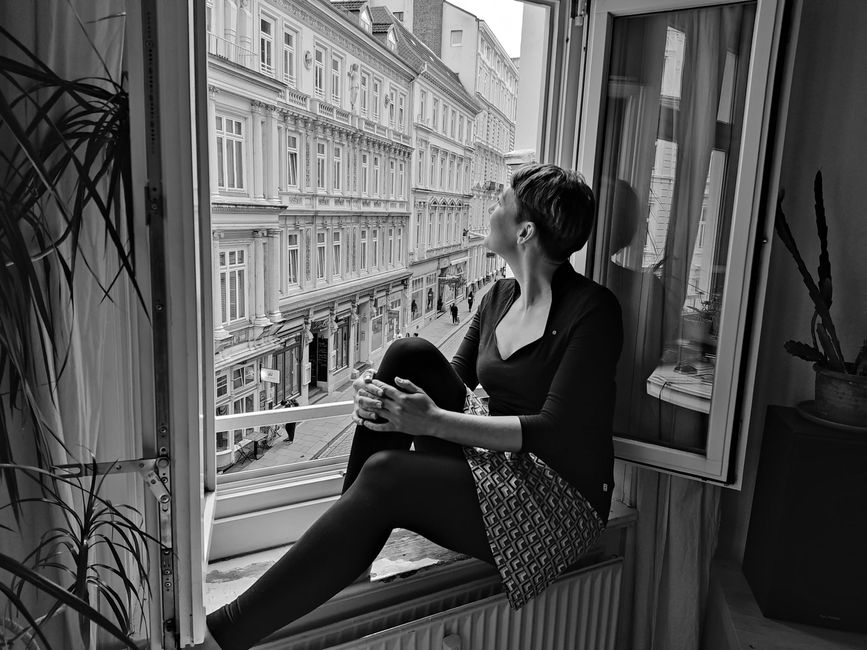Difficult terrain. Or: What Australia has to do with anti-communism and Nazi collaboration
Udgivet: 14.02.2024
Abonner på nyhedsbrev
“Well, I’ll say this quite frankly: my parents didn’t like Jews.” I’ve rarely heard someone say that so directly in connection with my research. I often notice that (non-Jewish) people don't even say the word "Jewish" or "Jews" in their mouths or rather whisper it. The topic seems uncomfortable. For some it is obvious that they avoid and avoid this word. People introduce me to someone, often with enthusiasm: “This is Sarah from Germany”. And every DP group that I work with and that has something to do with my topic DP Camp Flossenbürg is explicitly reported on - but Jewish DPs are not included. Also missing from my imagination is that I am currently at the Jewish Museum in Sydney. I notice this and leave it like that, but think: “Exciting. Yet again."
It's 12 p.m. and I have an appointment at a hip café in a working-class area. The guests are more than different. This place brings everyone together, from people in suits to craftsmen in dungarees, young mothers with their babies, students, pensioners. It smells like pancakes everywhere, because that's what this café is obviously known and loved for. Sitting opposite me is a man in his late 70s, Australian, that's what his passport says. I don't want to use his real name; So let's just call him Falk. He is a scientist and has worked at universities, that's what his CV says. At heart he clearly belongs to his national community. He is heavily involved in this and has been for decades. Their cultural center is just around the corner.
His mother, he reports, was without question a nationalist: religion, nation, family. Those were the three most important things in her life and that's how he was raised. Although his mother herself came from an ethnically mixed family, she clearly chose a side, without any ifs or buts. During our third conversation, Falk tells me that his father fought in the Vlasov army. The Vlasov Army, the so-called Russian Liberation Army, fought alongside the German Wehrmacht against the Soviet Union in World War II. What this unit was, what it fought for, or rather what it fought against, is still a hot topic today. For some, they are clearly and absolutely Nazi collaborators and war criminals. In the (former) Soviet Union, the Vlasov people were labeled traitors, and they are still viewed as such in Putin's Russia today. Others want to see the Vlasov Army as freedom fighters: from this perspective, they are anti-communists who (perhaps) fought on the wrong side, that of the German Nazis, but still stood up for something more important - namely against the Soviet Union. The end justifies the means – and cooperation, so the story goes. For others, like Falk, it is much more complicated. For him, what collaboration is and is is also a question of perspective. Before his father switched sides, he was in the Red Army, fought in the Soviet war against Finland and received several awards. He later fought as a Soviet soldier against the German occupiers. At some point, probably in 1942, probably somewhere in eastern Ukraine or Russia, he was taken prisoner by Germany. Somehow and sometime Falk's father came to Romania, then somehow and sometime to Germany and in 1944 to Cham in the Upper Palatinate. There he worked in a dairy. Maybe, if the few documents that exist are correct. But they could also be fake, even probably. Where, how and when Falk's father joined the Vlasov army is not entirely clear. There is no longer any documentation for this. “My father was very discreet.” There is hardly any incriminating material, documents or photos. He burned everything that could have harmed Falk's father. Falk remembers several such document burnings, including in Australia. Many people would have done that, says Falk. This is how people survived occupations and changing regimes. Covering tracks was common practice.
The only thing Falk knows is that after his captivity as a Red Army soldier, his father actually wanted to fight in another German unit - it is estimated that there were well over a million Soviets who worked with the German troops. Falk's father actually wanted to fight in a Waffen-SS unit, but somehow that didn't work out. Falk's father was born too far east and so he ended up in the "Russian Liberation Army". But his father didn't describe himself as Russian, says Falk. It can no longer be said whether his father was just trying to get out of German captivity or actually volunteered. Falk also asks – without expecting an answer from me – “How voluntary could something like that have been?” Over three million Soviet prisoners of war died miserably in German “custody”, starved to death and froze to death. Fighting on the German side was a way to get out of there, says Falk. Furthermore, no one could have known how the war would end.
Since his father had previous military experience and awards, he took a higher position in the Vlasov army. However, Falk said his father was not a war criminal or collaborator. He just fought for his own state and - in Falk's assessment - since his father was in the command staff of the Vlasov army, his father didn't really fight with the Germans at the front, he acted more in the background. He says his father was not involved in collaboration, war crimes, these “nasty things”, these “ugly things”. For Falk, organizing is different than shooting.
With liberation came a great silence. When he was around 20, Falk asked more questions and got his father to talk too. However, Falk's father preferred to keep his collaboration with the German Nazis to himself for a long time, especially later in Australia. But his time as a soldier in the Red Army wasn't a big issue either. For a long time in Australia the enemy image of a communist was much stronger than that of a Nazi or Nazi collaborator. Be silent and look forward, not back. Another continent, another time, wanting to forget.
So there I am, sitting in a café in February 2024 in the Australian summer. This is my third meeting with Falk and today it's explicitly about his family history. But again from the beginning: the first meeting was all about getting a foothold in this community and finding possible conversation partners. Something told me that I should try not only in one East Central European bubble, but also in the others. All groups, Poles, Ukrainians, Estonians, Latvians, Lithuanians, etc., affirmed that they might be in contact today and support each other from time to time, but that this was certainly not the case in the past. The mutual antipathy and tensions were too high, especially on the part of the respective elites.
“OK,” I said, “I see.”
And I wasn't satisfied with that. “Who could I talk to about “the others”?”
Pruning on the other side, slight grin. “Well, maybe with xy. I’ll give him a call.”
After mediation, I sat opposite Falk a few days later. At first the atmosphere of the conversation was rather cool. The person I was talking to was distracted, sometimes inattentive, and was always on the phone. I felt like I needed to be given a clear message that I wasn't important.
If skepticism and distrust were palpable, there it was; at the table, between me and Falk at meeting number 1. So I consciously started to tell more about myself. That I have been in Eastern Europe a lot and for a long time, that I don't just know one of the countries, that I struggle with the languages, which is what I usually do and have done. Everything was acknowledged, approved, and weighed. I felt like I was being watched, scrutinized, and at times it felt very uncomfortable.
At some point Falk looked at me and frowned. I mentioned that my second foreign language at school was Russian, by the way.
"Why this?",
"Well, I come from East Germany."
“So you experienced communism?” The question wasn’t a question, more of a statement.
I was perplexed and said that, having been born in 1989, I couldn't say that I had experienced much of it and that I wasn't sure whether the GDR of the 1980s would be described as a truly communist state. Falk now wanted to know about my family. That feeling of being checked again. How it was like what is being said. Which side my family was on. I think about it and answer: "Adapted. You would say "apolitical", kind of uninvolved, I think." Another scrutinizing look at me.
He was raised anti-communist, but only knows the stories from his community and his parents, who only knew, if at all, the Soviet Union before the Second World War.
After a while I have the feeling that someone else is sitting across from me. The skepticism has shifted somewhat from the table.
The second meeting with Falk was at the “Senior Club”. The elders of the community meet once a week to sing, play cards, have lunch and drink coffee. Falk invited me to come and said that many people were well over 90, some of them probably couldn't say much, but almost all of them had been in DP camps and in Germany, were born there and went to school there. I quickly found myself in a crowd of older people telling me about their lives. An older lady well over 95, finely dressed, her white-gray hair styled, a very friendly smile; she wants to give me books, her documents. I like her very much and I like her without knowing her. An older man lists the German place names that he still knows, another woman lists places from Austria that she still knows; some want to speak German with me. Falk leads an older man to me, who listens briefly, I think he feels uncomfortable when I tell him what I'm doing, remains silent, gets up and leaves. He looks back as he walks out and says it's hard for him to hear. That was strange and I think it would be exciting to talk to him right now. But I can't think about it for long, because the older lady in the pretty blue dress takes my hand, beams at me and talks about her youth in Germany as a displaced person. A man speaks to me in his native language. Falk comes over and asks demandingly in English “Do you get it or are you just pretending?” - " Do you understand or are you just pretending?" I smile back. Challenge accepted: and answer him in his language. He smiles.
Not without it, I think to myself as I leave the cultural center. There's a lot to explore, a bottomless pit and I'm knocked out. A lot of things are close to my topic, to Flossenbürg or Regensburg, but then again far away. Many people want to see me again and - I'll be honest - I'm happy to say that I won't be here for too long and I don't know when I'll be back.
In the National Archives
A day later I'm sitting in the reading room of the National Archives and it's only here that I realize that many people with whom I work directly and whose families I also have contact with were on the same ship to Australia. I had a suspicion, but no proof. I am excited and thrilled to not just believe but to know. I go through the passenger list meticulously.
Wow, I “know” him and both of them too, the name sounds familiar to me. There were all kinds of nationalities and religions on the ship, including some who had previously been to Bavaria. I get stuck on a lot of names and check what else I know about them. Then a young couple with a last name that means something to me. I'm sure I've heard it before, read it before. But in my database, no hit. Mh. How do I “know” the name?
Long thought.
Look up.
Try to focus and remember. How do I know this name? Where could I have found anything about them?
“That would be crazy! Another coincidence?!”
I write to Falk: “Tell me, were your parents’ first names such and such?”
“Yes, Sarah. These are my parents!” - “Yes, Sarah. These are my parents!"
I'm speechless. What is the probability that I will “find” Falk’s parents on the ship that seems to be central to my work in over 180,000 DPs who came to Australia on hundreds of ships over a period of three or four years? I'm perplexed, shaking my head.
I'll call Falk. “To be honest, what I want to talk to you most is your family!” Ok, Falk agrees, is also obviously a bit perplexed, but is now interested. Then we'll do it. He has some documents, a few photos, his niece once did research on the family.
We talk for a long time on the third conversation. I notice how the last bit of skepticism leaves the room as I translate a few lines for him that are on a document that I found about his father a few days ago. I can still speak so much Russian, I'm almost a little proud. Falk looks at me, is obviously impressed - and I'll be honest: I am also impressed by myself at this moment. The skepticism has just disappeared. My counterpart takes a USB stick, copies his photos and documents and gives it to me. "You can have it." I no longer have any inhibitions about asking things openly and Falk talks about his father in the Vlasov army, his parents' nationalism and anti-Semitism. I don't share all of his assessments and interpretations, but listen with interest.
I give him my research on his parents, he promises to keep asking around and see what else is available at home. We say goodbye in a friendly manner. He's almost warm towards me, a hug, see you soon. Now he also wants to go through the ship's passenger list and compare it with his cultural center membership file. “I'll do that tonight. This is exciting! I didn’t think they knew each other.”

Abonner på nyhedsbrev
Svar

Rejserapporter Australien

